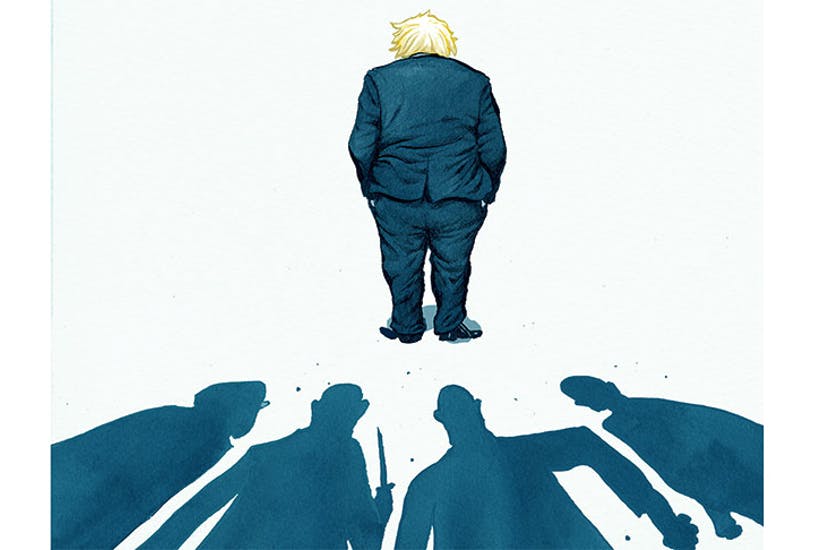Why would you stand for the Tory leadership? If you’re someone like Dominic Raab, Boris Johnson or Jeremy Hunt, you’ve been planning this for months, with a team in place since at least the start of the year because you really think you can win this. But there are other entrants who are highly unlikely to get anywhere near the final two but are still standing.
Some of these MPs may think they genuinely have an outside chance, but others have made a variety of calculations. Rory Stewart, for instance, is building a proper profile for himself as someone unafraid to walk around in public asking people what they think (which is rare for politicians today). This will set him in good stead for another leadership contest. He might not have to wait that long: the odds are so stacked against the next Prime Minister that they might find they have the shortest tenure in history.
Others want a Cabinet-level job, and are running on the assumption that being a candidate will make it difficult for the eventual winner to ignore them. This is often the case in leadership contests: the new Prime Minister wants to bring the party back together and appear gracious, and so they hand their bitter opponent a plum seat at the cabinet table. But there are just too many people standing this time round for that to be possible. In some cases, the candidate may get so little support that the new leader concludes that they are safe to ignore, and either leaves them languishing on the backbenches, or hands them a lower-rung ministerial job which takes that failed leadership hopeful back to the very position on the government ladder that they were occupying before they resigned over Brexit or before Theresa May resigned.
It might be, though, that some candidates don’t even make it onto the ballot. The entry of Sam Gyimah into the contest over the weekend has provoked a number of Tory MPs into calling for a change to the party’s rules for a leadership contest, or at least for some people to drop out. The 1922 Committee Executive meets tomorrow to discuss whether there should be a higher threshold for nominations for each candidate, or other options such as removing a large number of candidates after the first round. Meanwhile Housing Secretary James Brokenshire called on some of his colleagues to stand back from the contest, arguing in a speech today that ‘we don’t have the luxury of time and we need to get on with it’. Either way, it may transpire that not standing in the Tory leadership contest is more of a boost to someone’s career than launching a campaign.







Comments